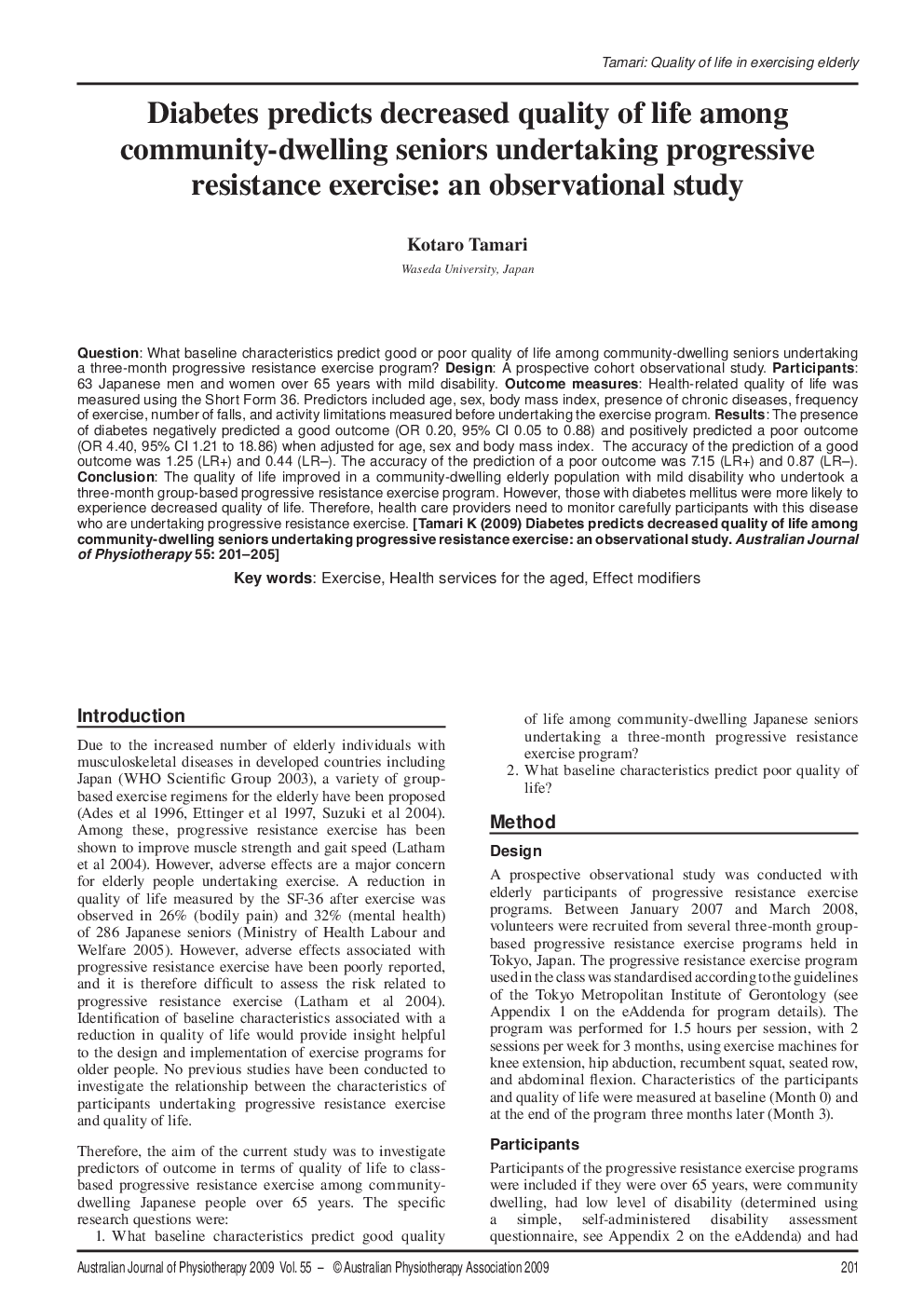| Article ID | Journal | Published Year | Pages | File Type |
|---|---|---|---|---|
| 2700907 | Australian Journal of Physiotherapy | 2009 | 5 Pages |
QuestionWhat baseline characteristics predict good or poor quality of life among community-dwelling seniors undertaking a three-month progressive resistance exercise program?DesignA prospective cohort observational study.Participants63 Japanese men and women over 65 years with mild disability.Outcome measuresHealth-related quality of life was measured using the Short Form 36. Predictors included age, sex, body mass index, presence of chronic diseases, frequency of exercise, number of falls, and activity limitations measured before undertaking the exercise program.ResultsThe presence of diabetes negatively predicted a good outcome (OR 0.20, 95% CI 0.05 to 0.88) and positively predicted a poor outcome (OR 4.40, 95% CI 1.21 to 18.86) when adjusted for age, sex and body mass index. The accuracy of the prediction of a good outcome was 1.25 (LR+) and 0.44 (LR−). The accuracy of the prediction of a poor outcome was 7.15 (LR+) and 0.87 (LR−).ConclusionThe quality of life improved in a community-dwelling elderly population with mild disability who undertook a three-month group-based progressive resistance exercise program. However, those with diabetes mellitus were more likely to experience decreased quality of life. Therefore, health care providers need to monitor carefully participants with this disease who are undertaking progressive resistance exercise.
